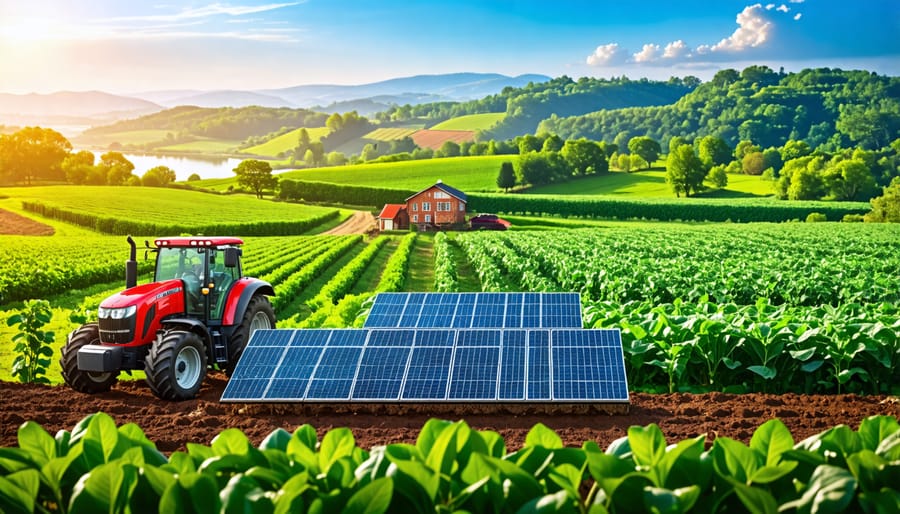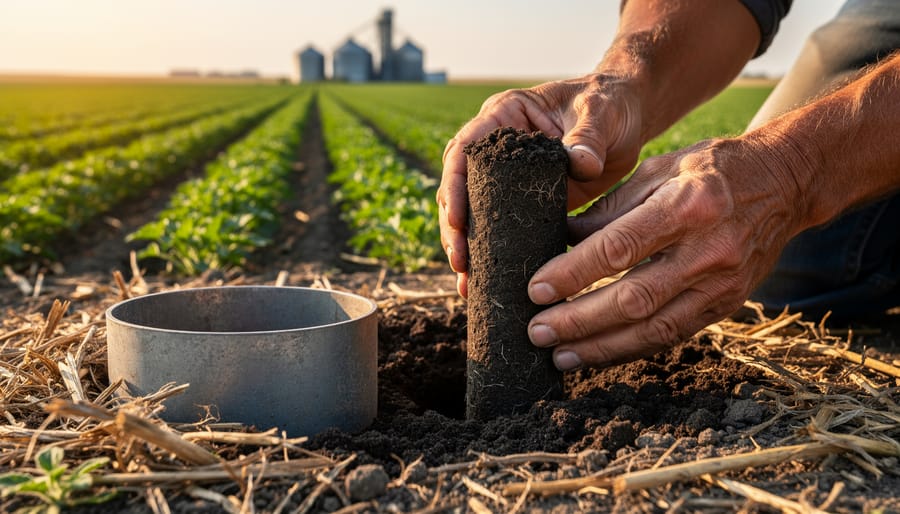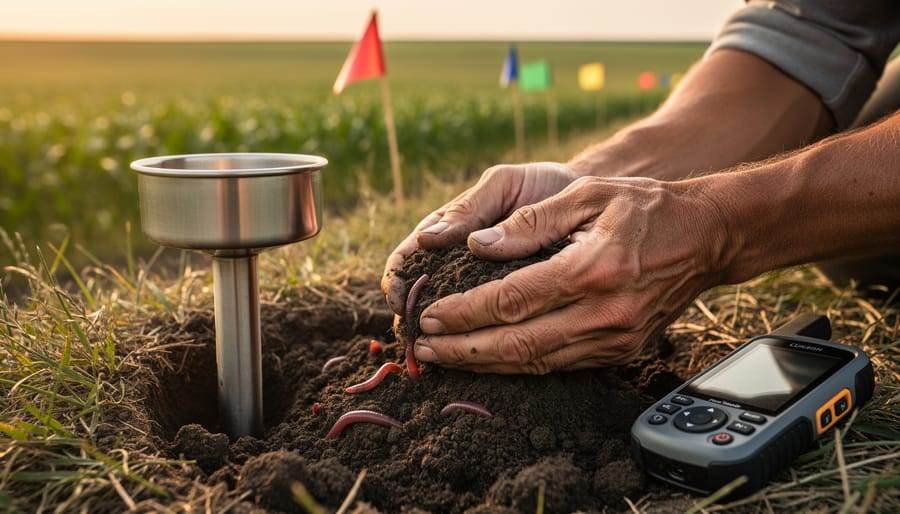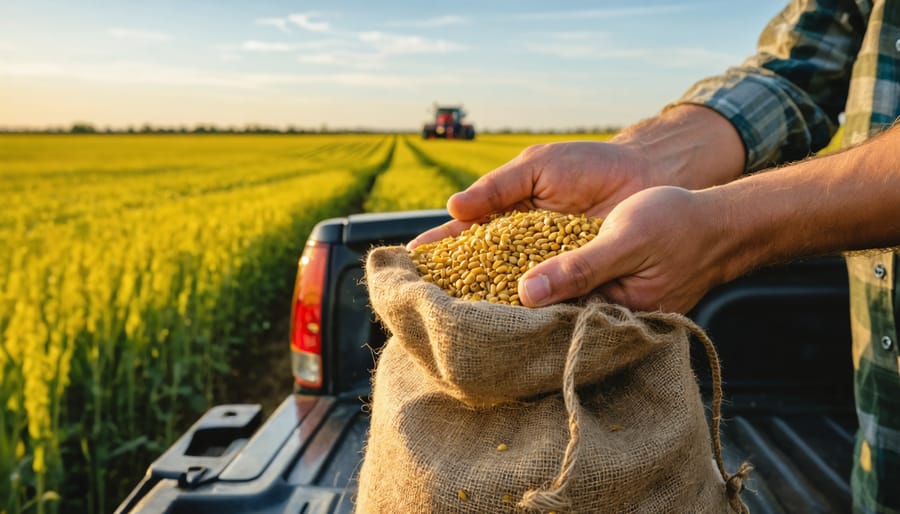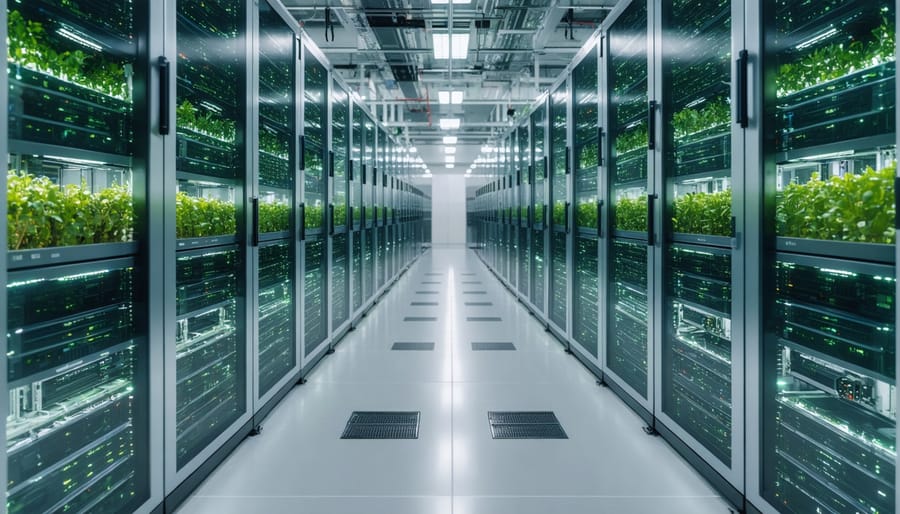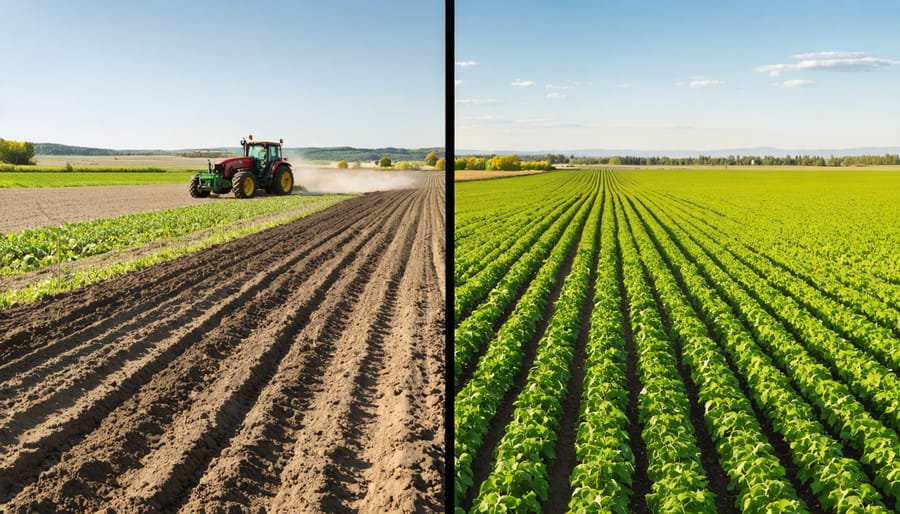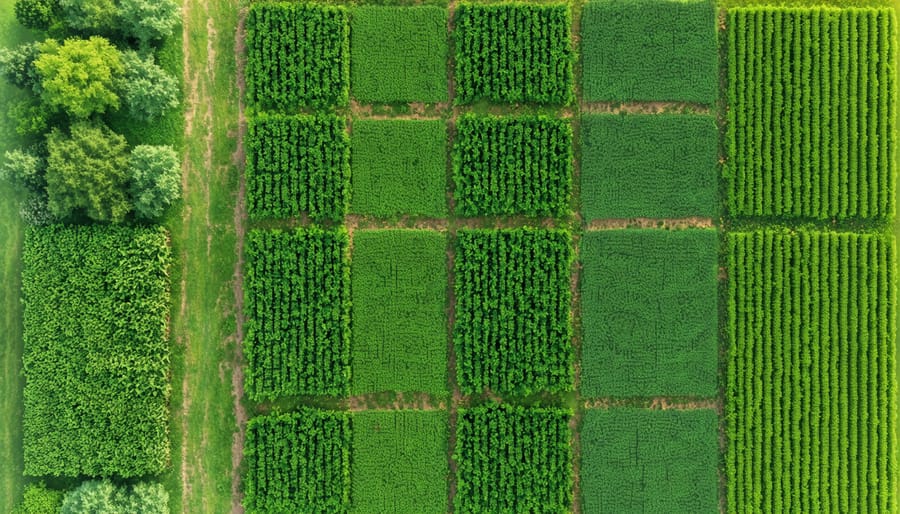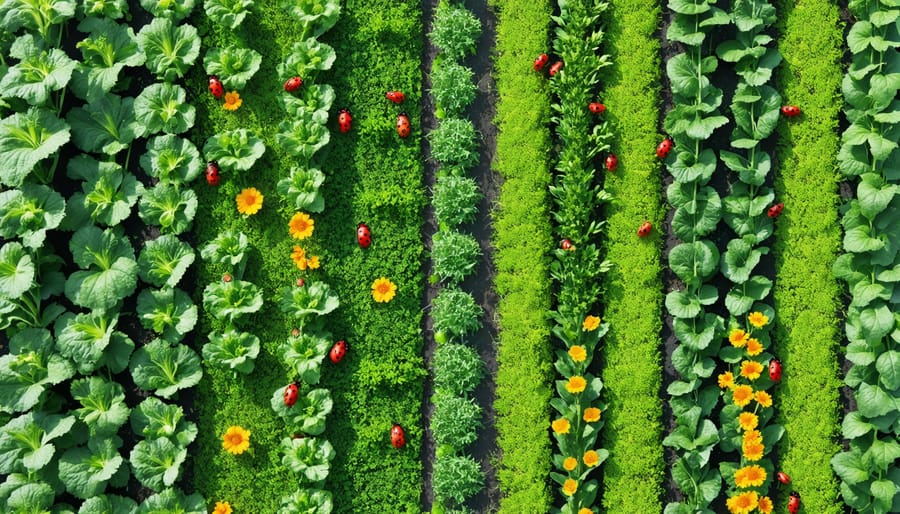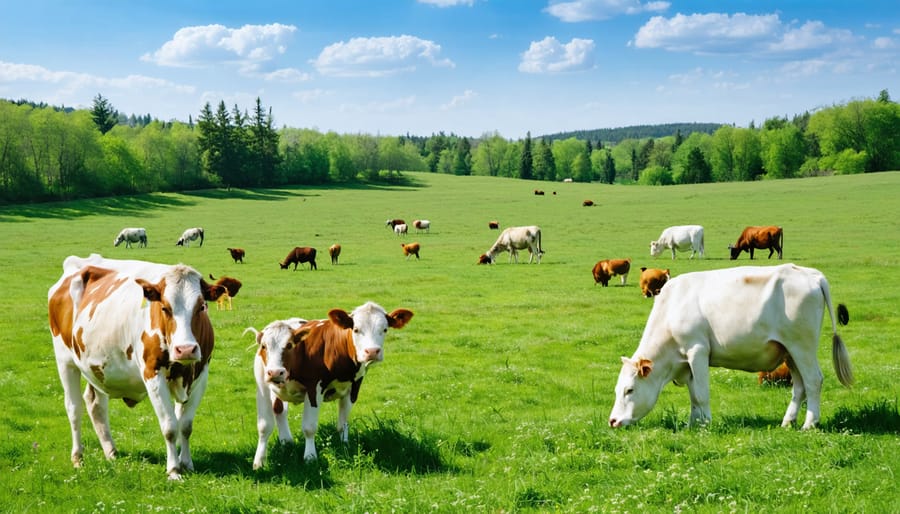Embrace organic farming practices to protect our environment and promote a sustainable future for Alberta’s agricultural communities. By eschewing synthetic pesticides and fertilizers, organic farming reduces pollution, enhances biodiversity, and improves soil health. It also mitigates climate change by sequestering more carbon in nutrient-rich soils. As consumer demand for organic products soars, transitioning to organic methods opens up new economic opportunities for farmers while aligning with ecological values. Join the growing movement of organic producers who are working in harmony with nature to build a greener, more resilient food system for generations to come.
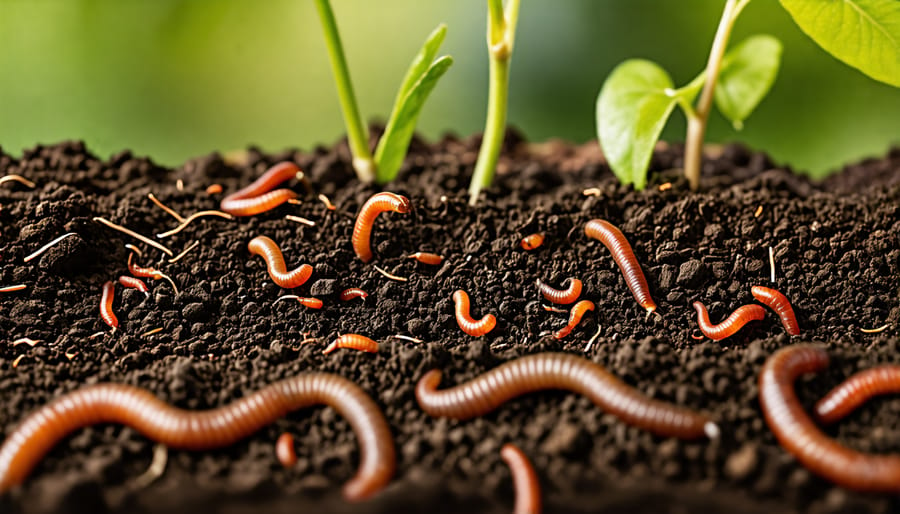
Healthier Soil, Healthier Planet
The Soil Food Web
The soil beneath our feet is teeming with life. In just a handful of healthy soil, there are more microorganisms than people on Earth. This complex ecosystem, known as the soil food web, is the foundation of organic farming. By nurturing beneficial bacteria, fungi, and other microbes, organic practices create rich, living soil that supports robust plant growth without synthetic inputs. These microorganisms break down organic matter, release essential nutrients, and even help plants resist disease and stress. Researchers at the University of Alberta have found that organic farming methods, such as crop rotation and cover cropping, significantly enhance soil health and microbial diversity compared to conventional practices. By working with nature to cultivate thriving soil communities, organic farmers not only grow nourishing food but also regenerate the very ground that sustains us.
Carbon Sequestration
Organic farming practices, such as crop rotation, cover cropping, and reduced tillage, can play a significant role in mitigating climate change by sequestering carbon in the soil. According to a study by the Rodale Institute, organic farming has the potential to sequester up to 1,000 pounds of carbon per acre per year. In the context of Alberta’s vast agricultural landscape, widespread adoption of organic practices could make a substantial impact on reducing greenhouse gas emissions.
By building healthy, carbon-rich soils, organic farmers not only contribute to climate change mitigation but also improve soil fertility, water retention, and resilience to extreme weather events. As more Canadian farmers embrace organic methods, the collective impact on carbon sequestration could be significant. Transitioning to organic farming requires dedication and knowledge, but support is available through local organic associations and government initiatives aimed at promoting sustainable agriculture practices.
Protecting Water Resources
Preserving Wetlands
Organic farming practices play a vital role in preserving wetlands, essential habitats for diverse plant and animal species. By establishing organic buffer zones around waterways, farmers create a natural barrier that filters pollutants and prevents soil erosion. These buffer zones, often consisting of native vegetation, provide a sanctuary for wildlife and help maintain the delicate balance of wetland ecosystems. In Alberta, organizations like Ducks Unlimited Canada work closely with farmers to implement these practices, recognizing the importance of wetlands for water quality, flood control, and biodiversity. By adopting organic farming methods and protecting these critical habitats, Canadian farmers not only enhance the sustainability of their operations but also contribute to the conservation of our natural heritage for future generations. As stewards of the land, embracing organic practices around wetlands is a powerful way for the agricultural community to make a positive impact on the environment.
Supporting Biodiversity
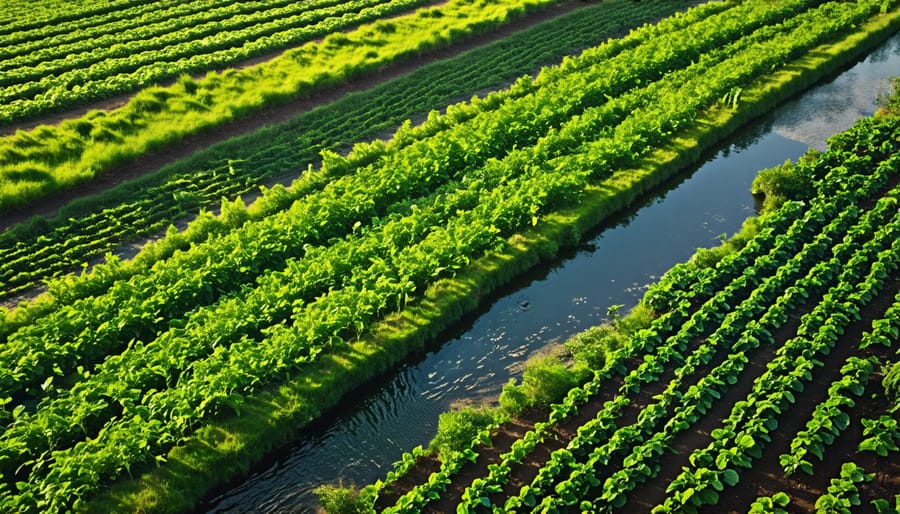
Heirloom Seed Saving
Organic farming plays a vital role in preserving plant genetic diversity through heirloom seed saving practices. By cultivating and saving seeds from traditional, non-hybrid plant varieties, organic farmers in Alberta and across Canada are helping to maintain a rich pool of genetic resources. These heirloom seeds, often passed down through generations, are adapted to local growing conditions and are more resilient to pests, diseases, and climate fluctuations. In contrast, the widespread use of genetically uniform seeds in conventional agriculture has led to a significant loss of plant biodiversity. Organic seed saving initiatives, such as community seed banks and seed swaps, not only conserve rare and heritage varieties but also foster a sense of connection to the land and agricultural heritage. By actively participating in these practices, Canadian farmers are safeguarding the future of our food supply and ensuring that the valuable traits found in heirloom plants remain available for generations to come.
Cleaner Air for All
Organic farming practices play a significant role in reducing greenhouse gas emissions and contributing to cleaner air for all. By avoiding fossil-fuel based inputs like synthetic fertilizers and pesticides, organic farmers in Alberta and across Canada are helping to mitigate the agricultural sector’s carbon footprint. Studies have shown that organic farming can reduce greenhouse gas emissions by up to 66% compared to conventional farming methods. This is achieved through practices like crop rotation, cover cropping, and composting, which improve soil health and reduce the need for chemical inputs.
Additionally, many organic farmers are embracing renewable energy solutions, such as solar-powered electric tractors, further reducing their reliance on fossil fuels. By supporting organic agriculture, we can all contribute to a cleaner, healthier environment for our communities and future generations. As consumers, choosing organic products not only supports our local farmers but also helps to reduce the overall environmental impact of our food system. Together, we can work towards a more sustainable and resilient agricultural landscape in Alberta and throughout Canada, ensuring cleaner air for all.
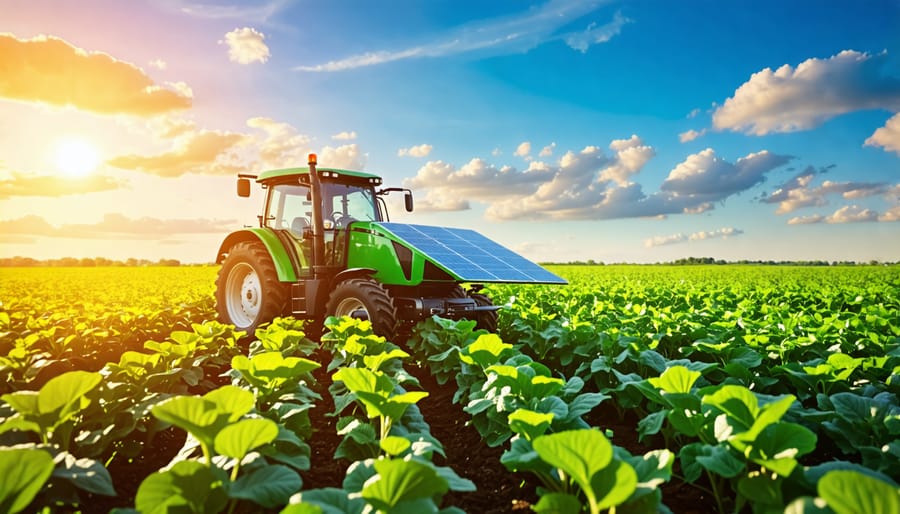
Organic Waste Solutions
Closing the Loop
Organic farming embraces circular systems that turn waste into valuable inputs. For instance, composting transforms organic waste, such as crop residues and animal manure, into nutrient-rich fertilizer. This closes the loop by recycling nutrients back into the soil. Cover cropping is another practice that enhances soil health by adding organic matter and preventing erosion. When cover crops are tilled into the soil, they become a natural fertilizer. By implementing these circular systems, organic farmers in Alberta and across Canada can reduce waste, improve soil fertility, and minimize the need for external inputs, creating a more sustainable and self-sufficient agricultural model.
In conclusion, organic farming offers a multitude of benefits for the environment, human health, and the long-term sustainability of our food systems. From enhancing biodiversity and improving soil health to reducing chemical exposure and supporting local economies, the advantages are clear. Alberta has made significant strides in promoting organic agriculture, with a growing number of certified organic farms and supportive policies. However, there is still much work to be done to make organic the norm rather than the exception.
As consumers, farmers, and members of the agricultural community, we all have a role to play in supporting the growth of organic farming in Alberta and beyond. By choosing to purchase organic products, advocating for policies that prioritize sustainable agriculture, and sharing knowledge about the benefits of organic practices, we can help create a healthier, more resilient future for ourselves and generations to come. Together, let’s embrace the power of organic farming and build a thriving, sustainable agricultural landscape in Alberta.

